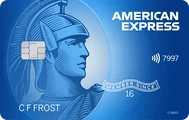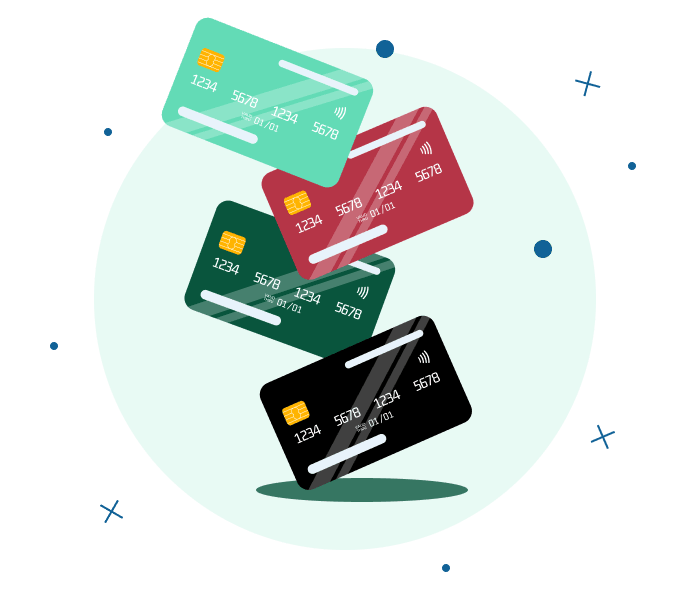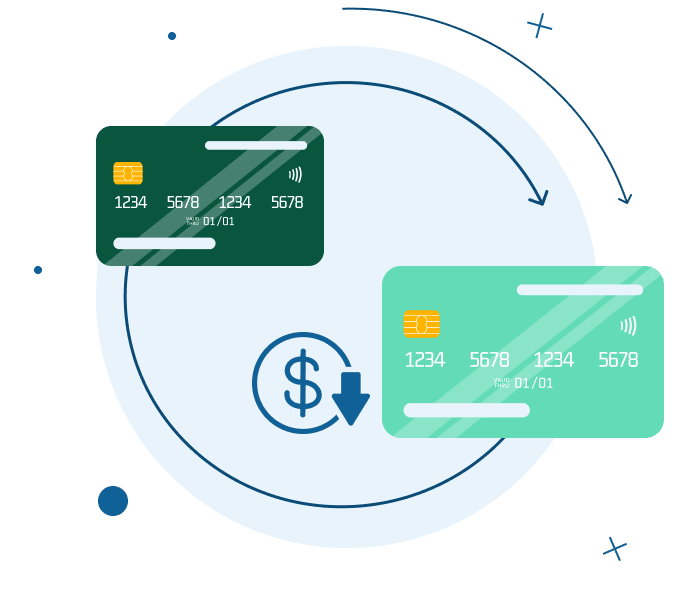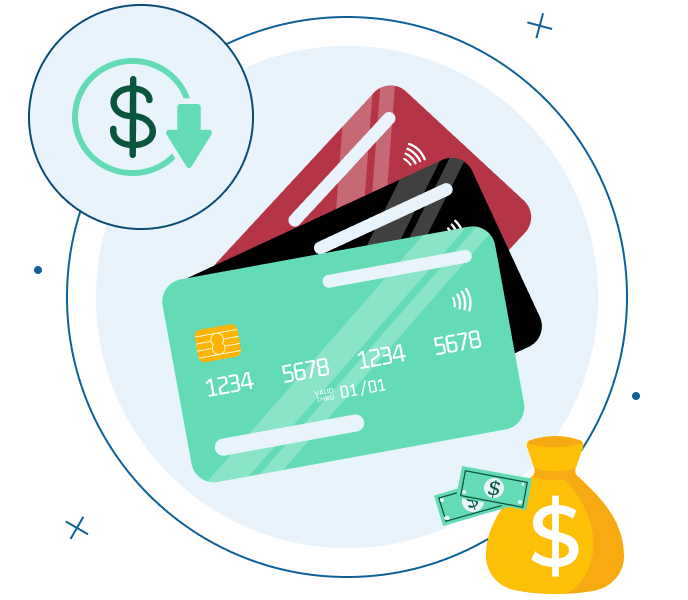Trusted by 1,000+ People Daily to Choose The Right Card
See Rates & Fees
See Rates & Fees
Terms Apply, See Rates & Fees
See Rates & Fees
See Rates & Fees
Terms Apply, See Rates & Fees


The Citi® Diamond Preferred® Card is a solid option if you’re looking to pay down existing debt or finance a large purchase over time. With one of the longest 0% intro APR periods on the market, it’s built for people focused on managing balances.








The Wells Fargo Active Cash® Card provides a straightforward cash rewards experience with unlimited 2% cash rewards on purchases. It’s great for people who prefer simplicity and consistent rewards.


chose a card with BestMoney this month
Before picking from the best credit cards, consider the perks and features you value most. The right fit depends on your credit score, financial goals, and spending habits. Start by asking what problem you want your next card to solve: lowering interest, earning rewards, building credit, or protecting big purchases.
If you're wondering, "what is the best credit card to have right now?", this guide compares top cards based on rewards, benefits, features, and fees—helping you apply only when the numbers make sense.
Many of the best cards on the market are cash back credit cards offering generous spending rewards without charging an annual fee. Some top credit cards also come with an intro APR offer for purchases, balance transfers, or both. While some rewards cards offer the same earning rate on all purchases, others offer enhanced rewards in bonus spending categories like dining out, groceries, or gas. Make sure to compare card costs, rewards programs, and ancillary benefits before you pick a credit card.

Understanding card types helps you choose what aligns with your goals. The best credit card to apply for usually matches your current credit score and actual spending behavior.
These cards offer cash back rewards for spending, which you can often redeem for a check in the mail, statement credits, gift cards, and other flexible options. When finding the best cash back credit card, most experts recommend looking for options with no annual fee and the most optimal rewards rate for your spending.

These credit cards earn flexible points for travel, airline miles, or hotel points. Many of the best travel credit cards on the market come from programs like American Express Membership Rewards, Capital One Miles, Chase Ultimate Rewards, and the Citi ThankYou program.

The best balance transfer credit cards may or may not offer rewards, but they all offer 0% APR on balance transfers for a limited time. Balance transfer fees usually apply, but people can save considerable sums on interest if they use these cards to get out of debt fast.

Best Balance Transfer Credit Cards
There are also credit cards that offer 0% APR on purchases for a limited time (and potentially balance transfers), and many offer rewards for spending. Most credit cards with 0% APR offers for purchases come with $0 annual fees.

Best Low Interest Credit Cards
| Card Type | Best For | Typical Perks | Watch Out For |
|---|---|---|---|
Cash back | Everyday purchases | Simple rewards, no annual fee | Category limits, rotating categories |
Travel | Frequent travelers | Miles, points, lounge access | Annual fees, complex redemptions |
Balance transfer | Paying off existing debt | 0% APR for transfers | Transfer fees, high post-APR |
Low interest / 0% APR | Financing purchases short-term | 0% APR, basic rewards | Risk of large balances if misused |
Secured / credit-building | New or rebuilding credit | Easier approval, credit reporting | Deposits, limited rewards |
The most important features of good credit cards depend on the type of card you're after. However, most top credit card offers come with at least some of the following:
Cash back, travel, or flexible points. Estimate first-year value (rewards + bonus - annual fee).
Plenty of top cards have no annual fee. If paying a fee, make sure you use 70%+ of its perks.
Look for cards reporting to all three bureaus. Secured cards can help if rebuilding.
From extended warranties to travel protections and virtual cards, perks vary widely.
The path to the right credit card looks different for everyone, mostly because we all have different goals. These steps can help you compare cards to find the perfect fit.
Top rewards cards need 700+. Fair credit (580–669) offers are more basic.
Match your goals: rewards, interest savings, or credit building.
Weigh rewards and benefits against the cost. Do a 1-year value estimate.
Understand redemption options. Some restrict to statement credits; others offer more flexibility.
Make a “must-have” list (e.g. no foreign fees, cell insurance) to avoid distractions.
Focus on cards that match your score, needs, and spending style. Apply for one at a time.
Once you find the credit card you want, applying is a breeze. These tips can help you get to the finish line.
Find your card online (directly from the issuer or a trusted source).
Fill out the application (name, income, SSN, housing, employment).
Review and submit.
Await decision—often instant. If delayed, expect results within 30 days.
Use pre-qualification tools to avoid unnecessary inquiries. Once approved, set up autopay and alerts.
Use one card for base rewards, another for bonus categories.
Keep utilization under 30%. Pay in full if possible.
Sign-up bonuses can yield major value—if spend goals fit your budget.
Consider these expert tips and tricks to help you get the most out of different card types.
Figure out how much you spend monthly and where you spend it. Chances are the majority of your spending is at a small handful of stores or in a small number of categories like grocery store or dining.
— Aaron Hurd, Travel rewards expert, Cards and Points
"Look for options that can offer you more total cash back in those categories,” Hurd adds. “Remember that you could hold both a 2% cash back credit card and a card that earns rewards in useful bonus categories like groceries, gas, or dining.”
"Never buy more than you can afford just because you have extra credit available," says travel rewards expert Kheel. "If you want to build a good credit score, you'll also want to avoid spending more than about 30% of your available credit at any given time. When you start using more than that on a regular basis, your credit utilization ratio increases, which can cause your overall credit score and credit health to go down."
"Chasing after sign-up bonuses (SUBs) beats out any category on a credit card. Most SUBs can earn 10%-plus back on your spend compared to half that in normal credit card spending," says travel rewards expert Matthew Dong of Wuhoo Group.
While the best credit card sign-up bonuses vary by card type, you can expect to earn $200 to $1,000 or more if you meet a minimum spending requirement within the first few months of account opening. However, ensure this minimum spend won't put you over budget.
Not sure you want a credit card? Consider these alternatives.
Buy now, pay later (BNPL): Short-term financing; watch fees.
Debit cards: No credit building; tied to your account.
Prepaid cards: Useful for budgeting, not for credit growth.
Personal loans: Predictable terms; good for larger amounts.
While all rankings for the "best credit cards" are subjective, we conducted considerable research to create this guide. Beyond considering credit card offers in various categories, we compared cards based on factors consumers care about. These include credit card rewards programs, rates and fees, features and benefits, account security, user experience, and customer service.
We also surveyed consumers and credit card experts to get their opinions on the best credit cards for achieving different goals. Finally, we assessed consumer sentiment on credit card usage and preferences across user platforms like myFICO.com, Reddit, and Quora.
The best credit card depends on a range of factors that vary from person to person. Where one person might benefit more from a 0% APR credit card or balance transfer credit card, another could be better suited to a cash back or travel credit card.
Some credit card issuers receive better rankings for their customer service and satisfaction each year. As an example, American Express earned the top ranking for credit card satisfaction in J.D. Power's 2024 U.S. Credit Card Satisfaction Study, followed by Discover, Capital One, and Chase.
The best credit card to build credit is often a secured credit card that requires a cash deposit as collateral. These cards let users secure their line of credit with a security deposit, and the issuers report payments and balances to the credit bureaus to build credit over time. Users can also get their deposit back when they close or upgrade their account in good standing.
The right number of credit cards varies from person to person. Some individuals are better off having a single card to keep track of each month, whereas others can successfully pair cards to earn more rewards or enjoy more benefits without ending up in debt.
There are several genuinely elite credit cards on the market, although these cards are primarily geared to big spenders, and some are offered on an invite-only basis.
Editorial disclosure: The credit card offers and information presented on this page are current as of the published date. However, credit card terms, including APRs, fees, and promotional offers, are subject to change without notice. Some offers listed may no longer be available or may have expired. Please refer to the issuer's website for the most up-to-date terms and conditions. Opinions expressed are the publications’ alone and not issued or approved by any partner.